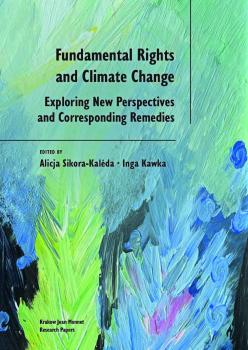The Bad Condition of the Environment as the Grounds for Liability of the State Treasury: Reflections on the Background of the Resolution by Polish Supreme Court of 28 May 2021 in the Case III CZP 27/20 .......... 47
Synopsis
A recent trend in environmental protection, noticeable in particular in relation to the climate, consists in asserting claims through the channel of fundamental rights. A side path of that bumpy road has also appeared before Polish courts, resolving cases of smog disputes where claimants alleged that the level of air pollution, obviously infringing respective provisions (notably CAFE directive), contravenes their right to a clean environment which should be perceived as belonging to a wide array of personal rights granted legal protection by civil law. After a few judgments in favor of celebrities invoking such a right, the Polish Supreme Court issued the resolution that expressly denied the possibility to recognize the environment as a personal interest and, apparently, put an end to a possible avalanche of similar claims. It said that the right to live in a clean environment is not a personal right – however, at the same time, shared the view that health, freedom, privacy are protected as personal rights, and infringement of air quality standards set out in the law may result in violation of these rights. Although smog cases are related to air protection, consequences of the resolution of the Supreme Court obviously exceed far beyond the scope of problems with air quality, and may be extrapolated to the environment as a whole. The present article constitutes an attempt to ponder the concepts of perceiving the environment as a subject of rights, in particular of a personal right, and to draw conclusions related to obstacles and incentives accompanying such trends, as well as their advantages and drawbacks.





